“Untangling” by London-based filmmaker Jameisha Prescod triumphed in the Managing Mental Health (single image) category at the Wellcome Photography Prize 2021.
The powerful photograph illuminates the way that the isolation of lockdown exacerbated Prescod’s depression as she spent much of her time alone in the “concentrated chaos” of her bedroom.
“It’s where I work a full-time job, eat, sleep, catch up with friends and most importantly cry,” Prescod says, pointing out that knitting allowed her to put “everything else on pause” for a while.
Prescod receives a £10,000 prize for her photograph – as does visual storyteller Yoppy Pieter. “Trans Woman: Between Colour and Voice”, Pieters’ photo series chronicling how the pandemic made life harder for trans women in Indonesia, triumphed in the Fighting Infections (series) category.
More than 10,000 images from all over the world were submitted for the Wellcome Photography Prize 2021. Check out a selection of winning photographs in this slideshow.
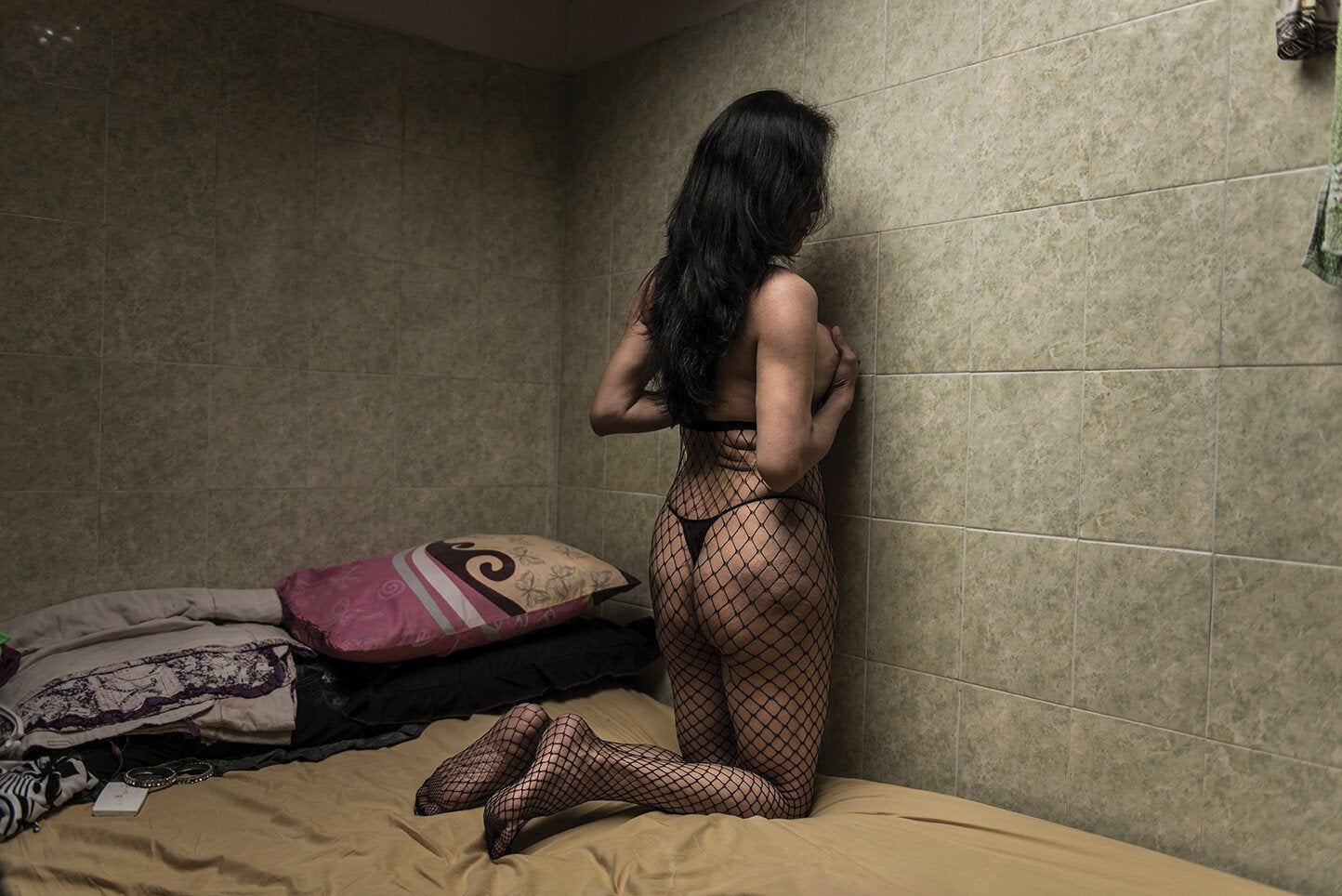
Mira (not her real name) is a sex worker in Jakarta. Covid restrictions mean that she can no longer work in the street, so she is working from home using the internet. “I have no option and need to work to pay rent and living expenses,” she says.
About this series: Trans women in Indonesia face many obstacles in life: it’s hard to get a job, and to access healthcare and other government services. All of these difficulties have been made much harder by Covid-19.
Photographed by Yoppy Pieter
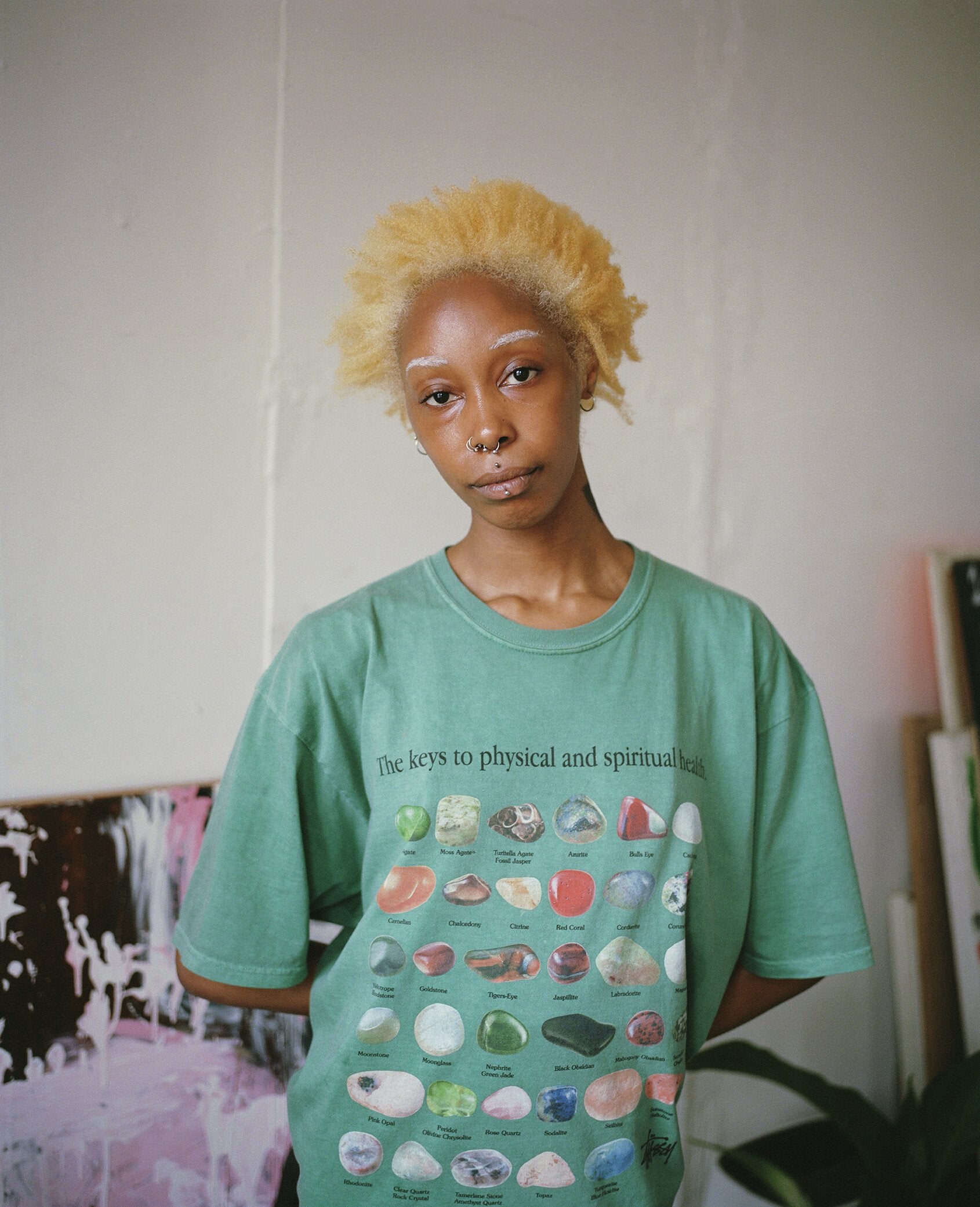
Calm (she/her) has long struggled with depression and anxiety, and recently she learned she has ADHD. She says she’d always thought it was something only energetic cis white boys had. “Recently my dreams keep coming true, like clairvoyant! It made me think I’m going mad, and being here I’m like, I’m not going crazy.”
About this series: In the UK, attention deficit hyperactivity disorder (ADHD) is ill-understood and under-diagnosed. The resultant lack of support makes life so much harder, causing mental health problems. To expand the conversation, Nora Nord photographs ADHD-diagnosed queer and trans people.Photographed by Nora Nord
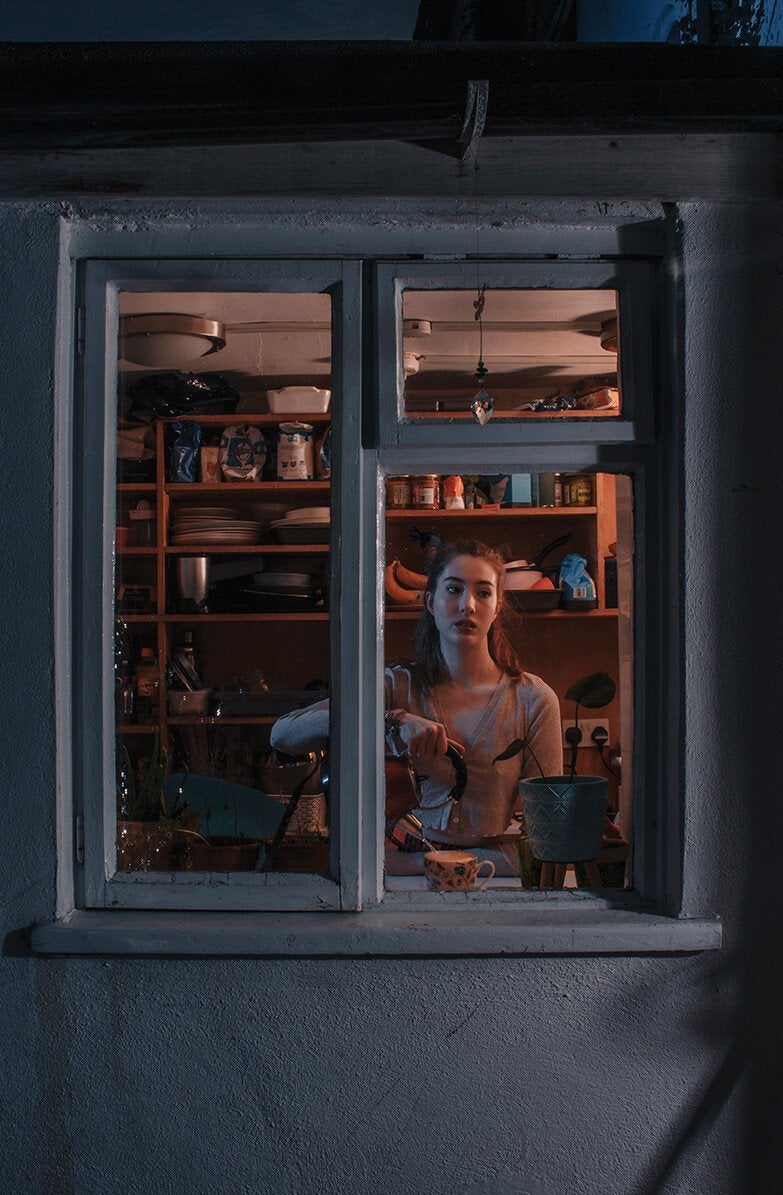
Experiences of dissociation involve feeling separated from yourself, like watching your life as if it were a film. Distanced self-portraits like this one capture a sense of that for Kate Rosewell, and help her to make sense of what’s in her mind. Dissociation can be a way of deflecting intense trauma, but it can also occur in less extreme situations, not least the isolation of lockdown, which in another way has separated so many of us from reality.
Photographed by Kate Rosewell
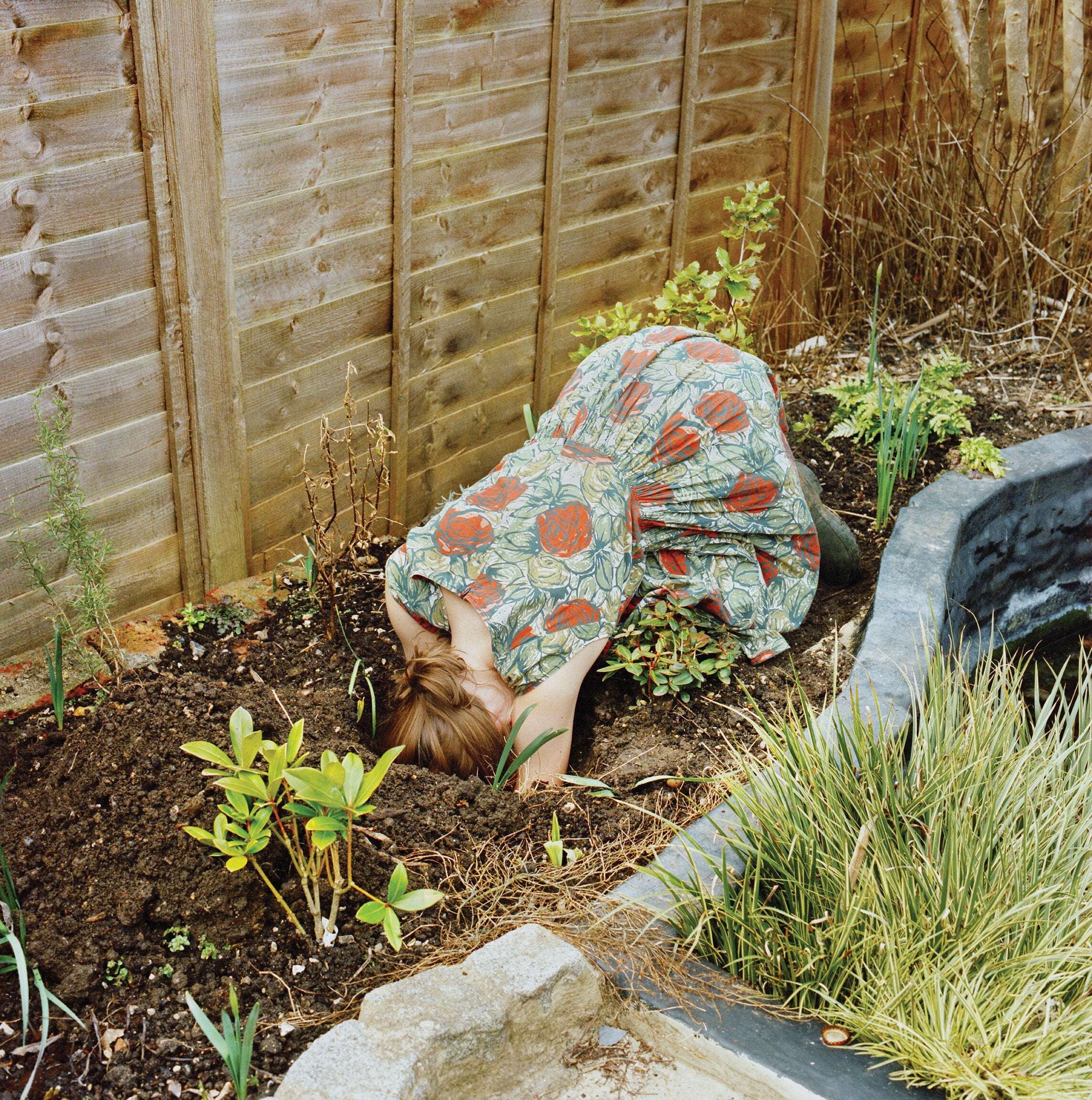
To help with her depression, Dulcie Wagstaff works in her garden. On this winter’s day, she confronted the cold with a summery floral dress and imagined burying herself, “connecting with the earth whilst hiding from the world above”. She says: “Gardening in winter is a defiant act, against the elements and our human instinct to stay indoors in the short, dark days. However in this instance it is a lifeline, in search of light, connection, movement and purpose.”Photographed by Dulcie Wagstaff
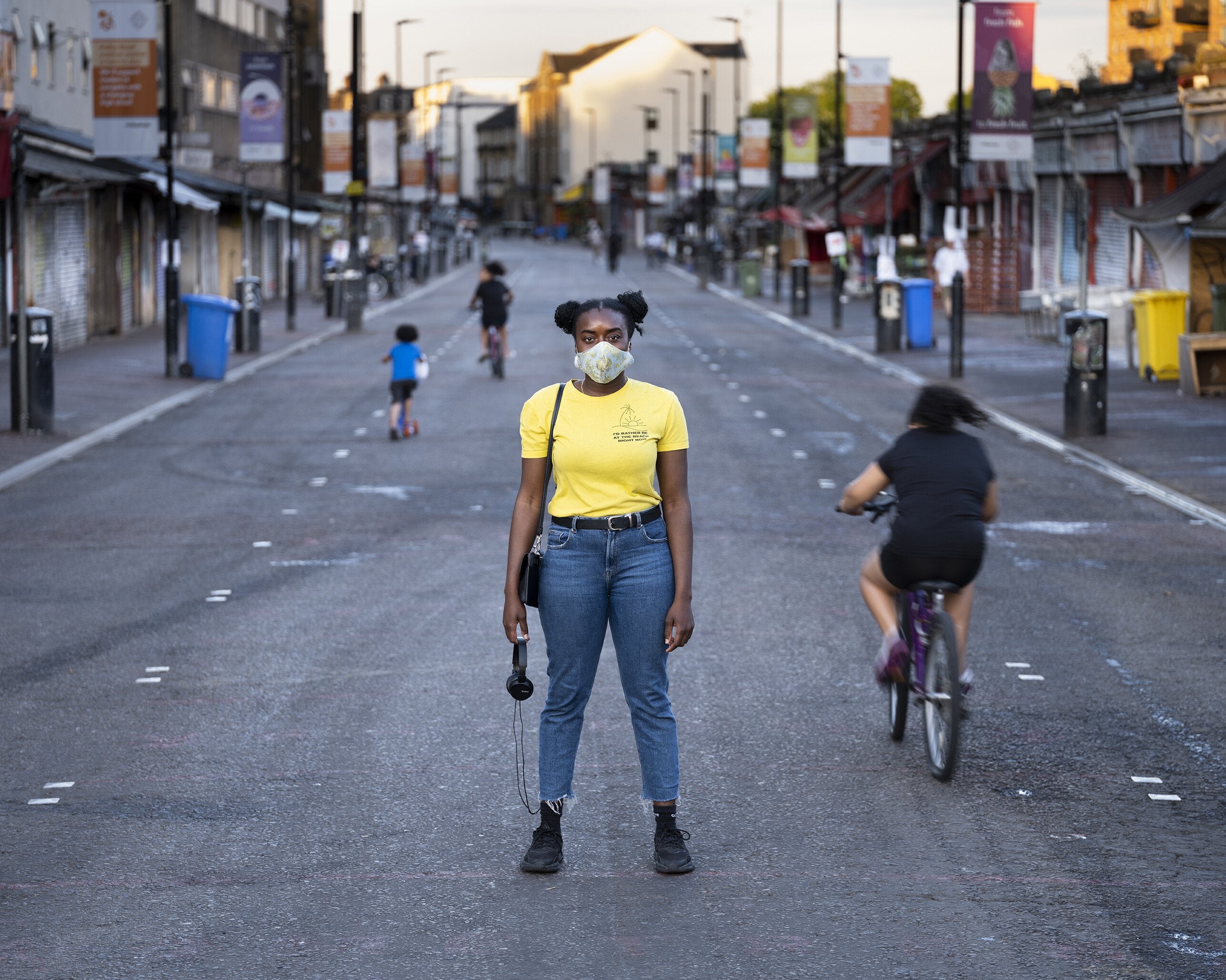
Elam Forrester, film maker. “Everything stopped at the end of March. I got a mild version of the virus and isolated myself beyond the recommended time as I had lost my sense of taste and smell. Keeping one’s distance in shops, buses and busy streets is challenging so wearing a mask feels like the safest option.”
About this series: Portraits taken during the UK’s first lockdown on Ridley Road in Hackney, east London. It’s usually the site of a bustling market, but its hours were restricted and distancing lines were painted on the road.
Photographed by Gideon Mendel
Like what you see? How about some more R29 goodness, right here?